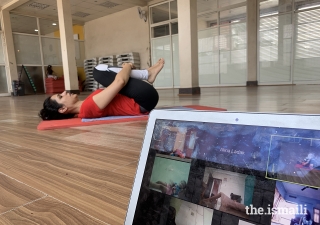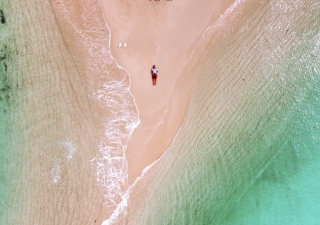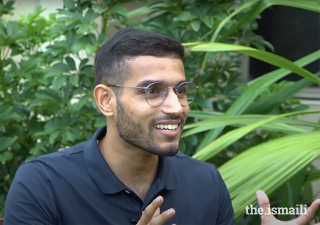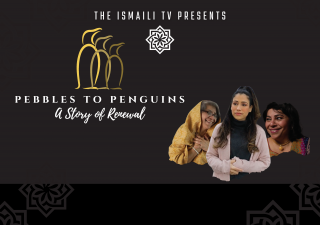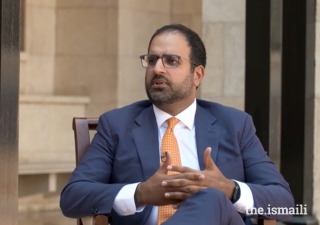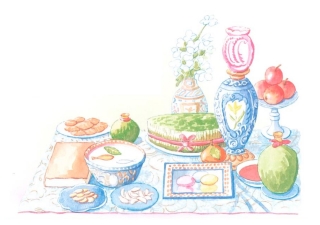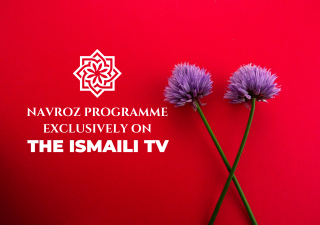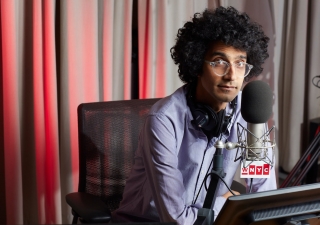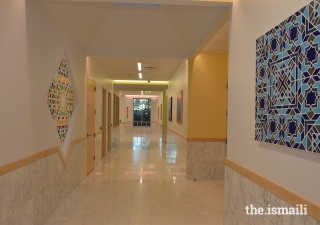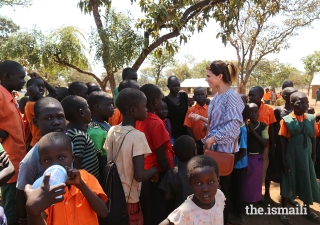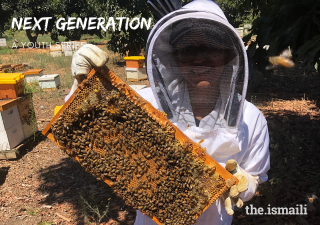Community News
I am silent in anticipation, as adrenaline rushes through me as a music lover. I delight at the opportunity of listening to original compositions. It is for this reason that when the song Mawla Mera Ishq Tu is shared with me, I eagerly click on the link to experience the musical journey expressed through this beautiful composition.
Art has often played a powerful role in shaping society’s consciousness, especially in times of crisis. Some of the most touching moments during the early days of the pandemic were people singing or playing music for their neighbours, drawing their communities out on balconies and rooftops to share the moment. Ismaili artists from various countries share their stories of how Covid-19 impacted them and how they adapted to the new normal.
At the opening of the Aga Khan Museum in Toronto, Canada, Prince Amyn emphasized the importance of art in our lives by noting that “art and culture can have a profound impact in healing misunderstanding and in fostering trust even across great divides.” He made this speech in 2014, although the essence of his words remains timeless.
This week, on our fifth episode of Trailblazers, we are joined by Danish Dhamani, the co-founder of Orai, and one of 2021’s Forbes 30 under 30.
“Of course, Mummy,” responds Zoya Nayani, the main character of Pebbles to Penguins: A Story of Renewal. Zoya’s definite statement is not unlike the responses of many people when asked, “Are you okay?” Entrenched in the context of the pandemic — like nearly everyone else in the world — the directors of Pebbles to Penguins are committed to uncovering the psychological subtext of these conversations.
This week, on our fourth episode of Trailblazers, we are joined by Rahim Daya, CEO of Barclays Private Bank, Switzerland, as well as the head of Middle East at Barclays. Based in Dubai, Rahim is responsible for the management and strategy of Barclays, Middle East, and is a drummer for the band, Khayal, having performed all across the globe, including at the Diamond Jubilee Celebration in Lisbon in 2018.
Today we share a story about two children, Nargis and Aziz, who celebrate the festival of Navroz with their family. Parents and grandparents may wish to read this story with children, whether in person or over a video call.
Next weekend, the Jamat around the world will celebrate Navroz, marking the beginning of a new year and the first day of spring. The Ismaili TV is pleased to present a two-day Navroz programme featuring programmes in multiple languages for children and adults alike.
This week, on the third episode of The Ismaili TV’s Trailblazers, we are joined by Latif Nasser, the host and executive producer of the Netflix documentary series ‘Connected: The Hidden Science of Everything’, and host of two podcast series’. He received a PhD in the history of science from Harvard University and is the recipient of the 2021 duPont Columbia Award for his series ‘The Other Latif’.
Art historians and enthusiasts often recognize the 10th through 13th centuries as a period that marked an increase in the usage of symmetrical, geometric patterns in the Muslim world. Most likely aided by Muslim mathematicians, artists and artisans produced a large variety of designs. Many of these geometric models developed interpretations of ornament that embody metaphysical intent.
Farah Williamson’s story is multi-faceted. As a 10-year-old girl, she had to flee her home country, Rwanda, during the 1994 genocide. Today, Farah is the co-founder of Project Shelter Wakadogo, a not-for-profit school in Gulu, Uganda. Farah speaks about these experiences and more in the second episode of The Ismaili TV’s original series Trailblazers.
The complex challenges facing our increasingly volatile world — from climate change to rural development to security — are also a source of opportunity for the next generation of leaders and changemakers. Around the world, young Ismailis like Rufayda Dhamani, Nurmuhammad Butabekov, and Aleem Rehmtulla are taking creative approaches to address these issues and prepare for the future of the global economy.


